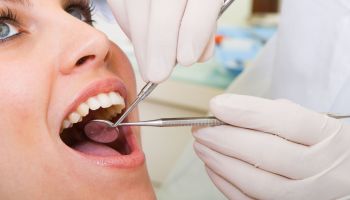Regular dental visits may help prevent illness.
Experts recommend coming in for dental checkups at least twice a year. Benefits of this will not only help us maintain good oral health but it may decrease our risk of getting ill. This by reducing bacteria in the mouth.

Research has found that those of us who never get dental checkups have an 86 percent greater risk of pneumonia. Contrary to those who visit the dentist twice a year. In reality we can never rid the mouth of bacteria altogether, but good oral hygiene can limit quantities of bacteria present.
Our mouth and face reflect signs and symptoms of health and disease. These signs can serve as an adjunct for diagnosis of some conditions. Diagnostic tests using oral cells and fluids especially saliva are available to detect drug abuse, hormonal changes, specific diseases, and more.
Nearly one million Americans become ill with pneumonia every year and 50,000 die. While it is more common among older people and those with conditions such as AIDS or lung disease, anyone can get this infection.
This is due to the fact that our body contains an endless amount of bacteria. Fungi and viruses called microbes also thrive inside our bodies. Some microbes are good and some are bad, but even bad microbes only cause disease under certain circumstances. Bacteria can be accidentally inhaled or aspirated into the lungs and cause infection. Routine dental visits may reduce the amount of bacteria that can be aspirated.
A healthy mouth enables nutrition of our physical body. As well as enhances our social interaction and promotes self esteem and feelings of well being.
Our mouth serves as a “window” to the rest of our body, providing signals of general health disorders. For example;
- Mouth lesions may be amongst the first signs of HIV infection.
- Aphthous ulcers are occasionally a manifestation of Coeliac disease or Crohn’s disease.
- Pale and bleeding gums can be a marker for blood disorders.
- Bone loss in the lower jaw can be an early indicator of skeletal osteoporosis.
- Changes in our tooth appearance can indicate bulimia or anorexia.
A diagnostic test of saliva can show presence of many compounds that enter our body. For example;
- alcohol
- nicotine
- opiates
- drugs
- hormones
- environmental toxins
- antibodies
Oral conditions have an impact on our overall health. Bacteria from our mouth can cause infection in other parts of our body. Imune systems that have been compromised by disease or medical treatments like cancer and heart disease share common risk factors with oral disease.
